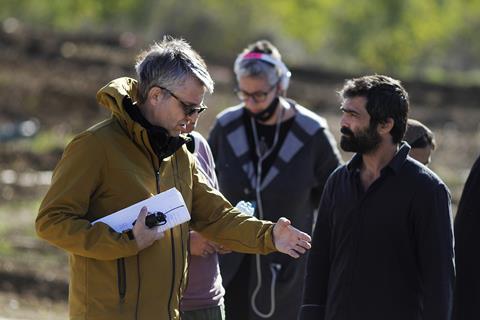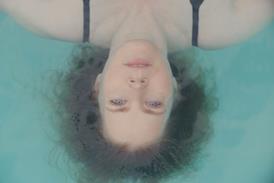
Serbian director Vuk Ršumović‘s Sarajevo competition film Dwelling Among The Gods is about a young Hazara woman from Afghanistan, who makes the long journey to Belgrade with her husband and three children.
She discovers her younger brother has drowned and battles tirelessly to give him a proper burial in the city.
Dwelling Among The Gods is the second feature by Ršumović, who made his debut with No One’s Child in 2014. Ršumović wrote the script with Momir Turudić.
This film was set up as a three -way co-production between Mirko Bojović of Serbia’s BaBoon Production, Croatia’s Kinorama and the Italian outfit Nightswim and stars Iran-Afghani actor Fereshteh Hosseini with Reza Akhlaghi, Branka Katić, Nikola Ristanovski, Vule Marković and Miloš Timotijević.
Ršumović tells Screen how his modern-day retelling of Antigone came together.
What prompted you to make this film telling this story?
It is a true story. Most of the characters are based on real people but I decided not to say up front that it is a true story. I didn’t want to play that card.
This happened in 2015 but the story is not about a specific moment, instead it is more archetypal in its meaning and intention. Fereshteh [the main character is named after the lead actress] is a modern Antigone, a modern heroine of epic proportions.
I am so grateful to Fereshteh [Hosseini] for sharing her personal, most intimate stories that we added to the main character. They became an essential part of the narrative. In the truest sense of the word, she gave her heart and soul for this film. I can say that her character and its blend of authenticity and fiction are what make this film so special.
On a side note, it was very funny and inspiring when the actors met with the real people. It was a moment of, “You are me, are you?”
What were the biggest challenges about making the film?
One of the obvious ones was to make a movie in a language that you don’t understand, specifically in Dari, which is a variety of Farsi spoken in Afghanistan.
The other challenge is to make a film that feels true to the people who are in it. I tried my best to make the film feel like it’s their own.
How did you set up the film as a three-way co-production?
It was a blessing to have [Italy’s] NightSwim and [Croatia’s] Kinorama as co-producers. I had worked with Ankica Jurić Tilić and Vanja Sremac from Kinorama on No One’s Child.
I know Ines Vasiljević from NightSwim very well, we’re old friends and we were waiting for an opportunity to work together. She and Stefano Sardo helped immensely in the realisation of this film. We shot parts of the film in Italy and did the post-production there.
Which co-production markets or development workshops did you go to with this project?
I started developing the initial story at TorinoFilm Lab Script&Pitch. Antoine Le Bos was my mentor. I enjoyed his input, expertise and passion. We were also part of MIDPOINT Intensive and eQuinoxe Europe. All that work paid off in that specific moment. The unfortunate thing is that the pandemic happened, and this changed our story to the extreme. All of a sudden, we didn’t have the possibility to make the film that we initially wanted to. It had to become simpler and more contained. In the end, I believe it is for the better.

























No comments yet